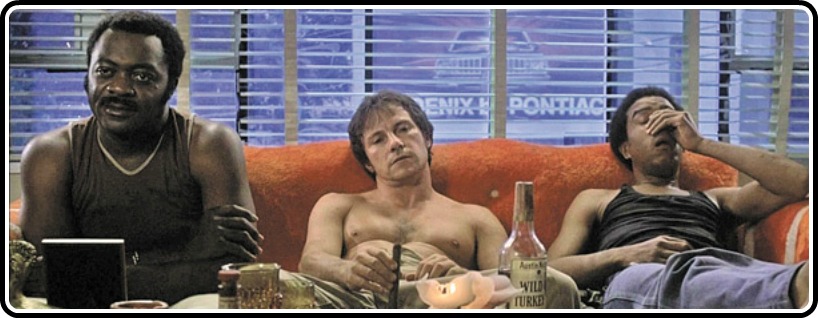Every filmmaker has to start somewhere.
Best known, likely at least to mainstream audiences, as the screenwriter behind such masterpieces as Taxi Driver, writer/director/former critic /occasional essayist Paul Schrader is now fodder for a much wider discussion, what with the recent release of his latest effort. Entitled The Canyons, Schrader, and his picture (along with its star, Lindsay Lohan), have become some of the most talked about topics within the film world over the last week or so, and it doesn’t appear to be stopping.
A breathtakingly cold meditation on a generation’s sociological death, The Canyons marks an interesting step for a man once steeped in aesthetic experimentation, a man behind such brazen experiences as the one he gave us in the form of Mishima: A Life In Four Chapter. That said, while it couldn’t be aesthetically any further from where the filmmaker began, his first film is still as vital as anything released today, despite its age, now just passed 35 years.
Schrader headed home (sort of, he’s a Grand Rapids, MI boy) for his first film, the Detroit-set Blue Collar, telling a story that couldn’t be further from that of the 20-something hangers-on that he and screenwriter Bret Easton Ellis brought us in The Canyons. We meet a trio of best friends, Zeke (Richard Pryor), Jerry (Harvey Keitel) and Smokey (Yaphet Kotto) a trio currently working in a plant assembling Checker Cab vehicles. Able to only marginally make good on their salaries, the three men are truly on the edge of needing a massive break. With a company unwilling to budge an inch on anything, even something as miniscule as, say, a locker door being broke, they decide to take their lives, and their futures, in their own hands.
In order to do so, the men must take drastic measures. After discovering that their union is keeping a rather large sum of cash in a vault, they decide to rob the union, only to discover that corruption is rampant and the union is willing to do just about anything to get this information back. Originally released in 1978, a year that saw films like Grease and Superman lead the box office, the film hit the skids in theaters, and has since become a forgotten picture, saved primarily for those only curious with the works of Schrader, a director who himself has seemed to have been passed by. However, with his new film proving he’s still at the top of his game, this masterpiece proves that he may have debuted with just as powerful a picture.
Schrader’s hands are truly all over this picture, but it’s hard not to see its three leading men as the picture’s real stars. With a killer threesome including Keitel, Pryor and Kotto, the film’s cast is absolutely superb. Pryor is the real breakthrough here, an actor who had never (and in my opinion would never again) show off just how much kinetic energy and true life he could really give a role. Best known for his comedic work, Pryor’s performance is breathtakingly raw, a fittingly real and viscerally charged turn that is a microcosm of just how biting this film’s naturalism truly is.
While the opening of the film, set against Captain Beefheart’s Hard Workin’ Man, hints at a picture that has a rambunctious sense of style, Schrader’s film is decidedly closer to the first chords you hear over the breathtaking credits sequence. In your face, unwilling to pull a single damn punch, and ultimately an aggressive look at the vicious nature of capitalism, the film is as brooding a piece a work as Schrader has yet crafted. Hitting closer to Schrader’s journalistic beginnings than much of his following work, the film feels like dispatches from the not-so-fictional frontlines that it draws from.
The themes are also as pertinent and vital as anything we’ve seen since, summed up in a voice over during what may be one of the most striking final freeze frames you’ll ever see, Schrader’s picture is inherently about the aggressive nature of capitalism. Hell bent on keeping everyone in their own place, these three men (with Kotto and Keitel just as superb in their respective roles as Pryor) are turned into paranoid co-workers who ultimately go against one another without ever truly making any headway. While unions are meant to unite, what ultimately happens, as posited by this film, is that the system inherently forces one another to move forward in life only by stepping on throats.
In the recent wake of yet more news of the downfall of Detroit, this film doesn’t just hit directly in the heart of that city. An economy that is slowly becoming a service economy, this film is a stark meditation on a nation’s economy that has lost the glimmer of The American Dream. A fitting counterpoint to the glitzy box office smash that was 1978’s Grease, the film has no hope, no sheen, no gloss. All that is left is the real dying heart of the ideal that this nation was founded on. Proving that modern capitalism has become a perversion of what it originally was intended to be, Schrader’s debut film is a beautifully crafted motion picture that is as much a time capsule from a nation hot off the heels of Vietnam and Watergate, and as a still impactful look at race, unions and a nation on the brink of losing its heartbeat.




![Bergman Island (The Criterion Collection) [Blu-ray]](https://criterioncast.com/wp-content/uploads/2022/11/bergman-island-the-criterion-collection-blu-ray-400x496.jpg)
![This Is Not a Burial, It’s a Resurrection (The Criterion Collection) [Blu-ray]](https://criterioncast.com/wp-content/uploads/2022/11/this-is-not-a-burial-its-a-resurrection-the-criterion-collection-blu-ray-400x496.jpg)
![Lars von Trier's Europe Trilogy (The Criterion Collection) [The Element of Crime/Epidemic/Europa] [Blu-ray]](https://criterioncast.com/wp-content/uploads/2022/11/lars-von-triers-europe-trilogy-the-criterion-collection-the-element-of-400x496.jpg)
![Imitation of Life (The Criterion Collection) [Blu-ray]](https://criterioncast.com/wp-content/uploads/2022/11/imitation-of-life-the-criterion-collection-blu-ray-400x496.jpg)
![The Adventures of Baron Munchausen (The Criterion Collection) [4K UHD]](https://criterioncast.com/wp-content/uploads/2022/11/the-adventures-of-baron-munchausen-the-criterion-collection-4k-uhd-400x496.jpg)
![Cooley High [Criterion Collection] [Blu-ray] [1975]](https://criterioncast.com/wp-content/uploads/2022/11/cooley-high-criterion-collection-blu-ray-1975-400x496.jpg)